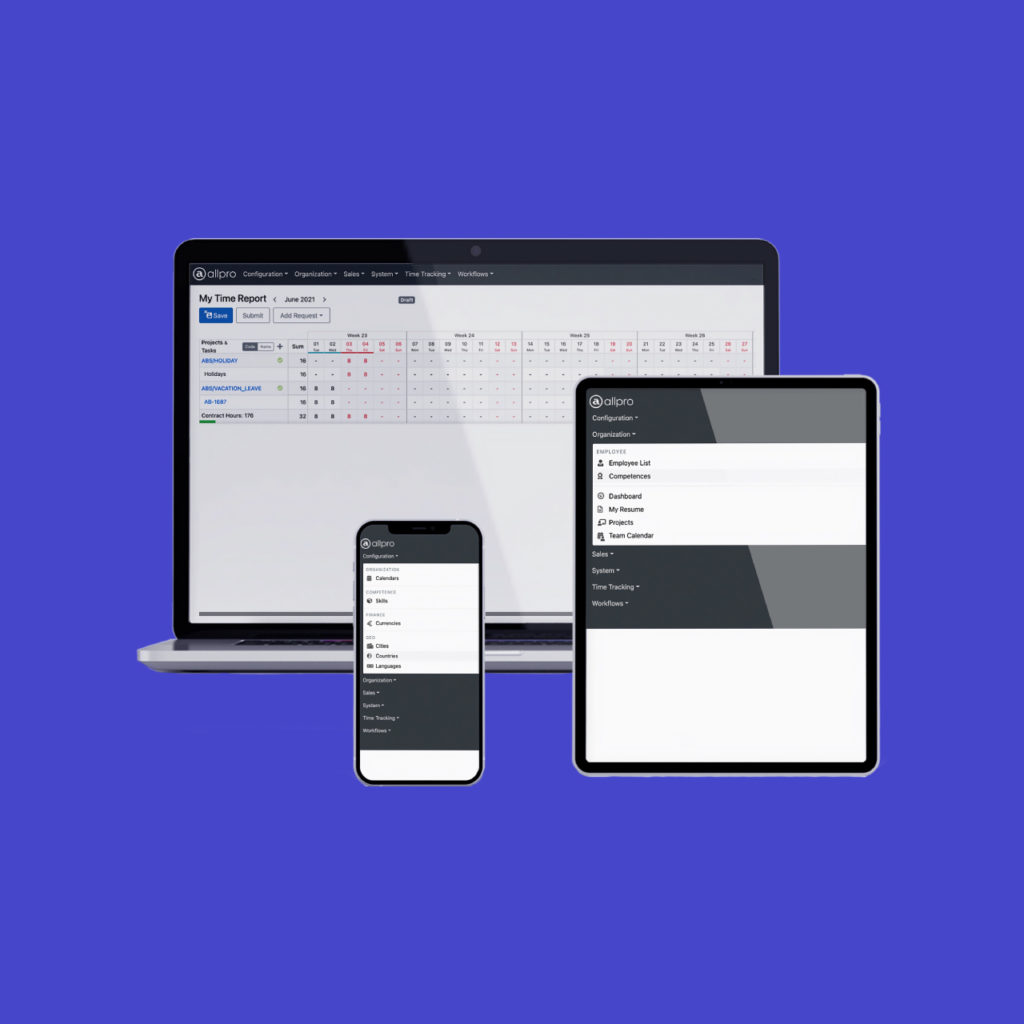How does AllPro work and what are its main functionalities?
What is AllPro?
AllPro is an all-in-one project and resource management tool that can make daily operations of your company much easier with project allocation, time tracking and invoicing modules.
To find out more about how AllPro can help your business grow and thrive, read our latest article ‘How can you make project resource management a breeze with AllPro’?
What are Allpro’s main functionalities?
AllPro can be customised in multiple ways due to its unique range of functionalities and elements that can be included or excluded from the final version of the product we deliver to you, depending on your business. The product can be also adjusted within the same organisation following certain roles you define for your team members that require different levels of access to certain modules.
AllPro is divided into the following modules:
Configuration
Configuration module allows you to define roles and competencies within your organisation as well as your contract types, business trip arrangements, locations, company bank accounts, invoice and time report templates. Ideally, you should aim to represent your company and all details as closely as possible in this module, so any estimations and information in all other modules will be accurate.
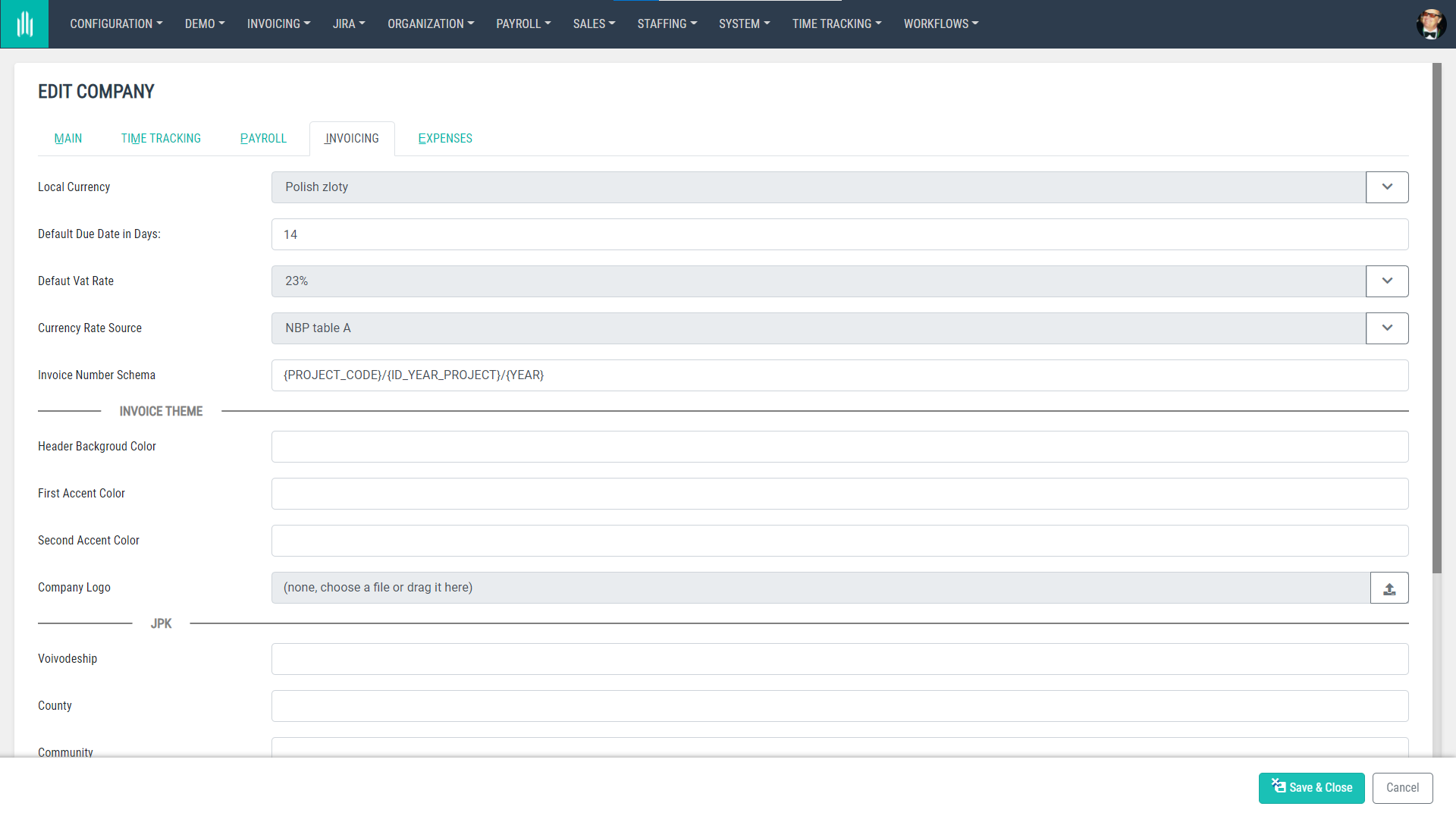 Invoicing
Invoicing
Invoicing is where users can create, submit and issue their invoices. There’s also an option to see all your past invoices.
Organization
This module is mainly for Managers who can check a list of all their team members and see the employee journeys for each of them. This is where they can also see a chart with seniority levels and their salary ranges. This chart can be a convenient tool for any discussion about salary raise where Managers can quickly and clearly see what they can offer their team members and what their professional career with the company has been like.
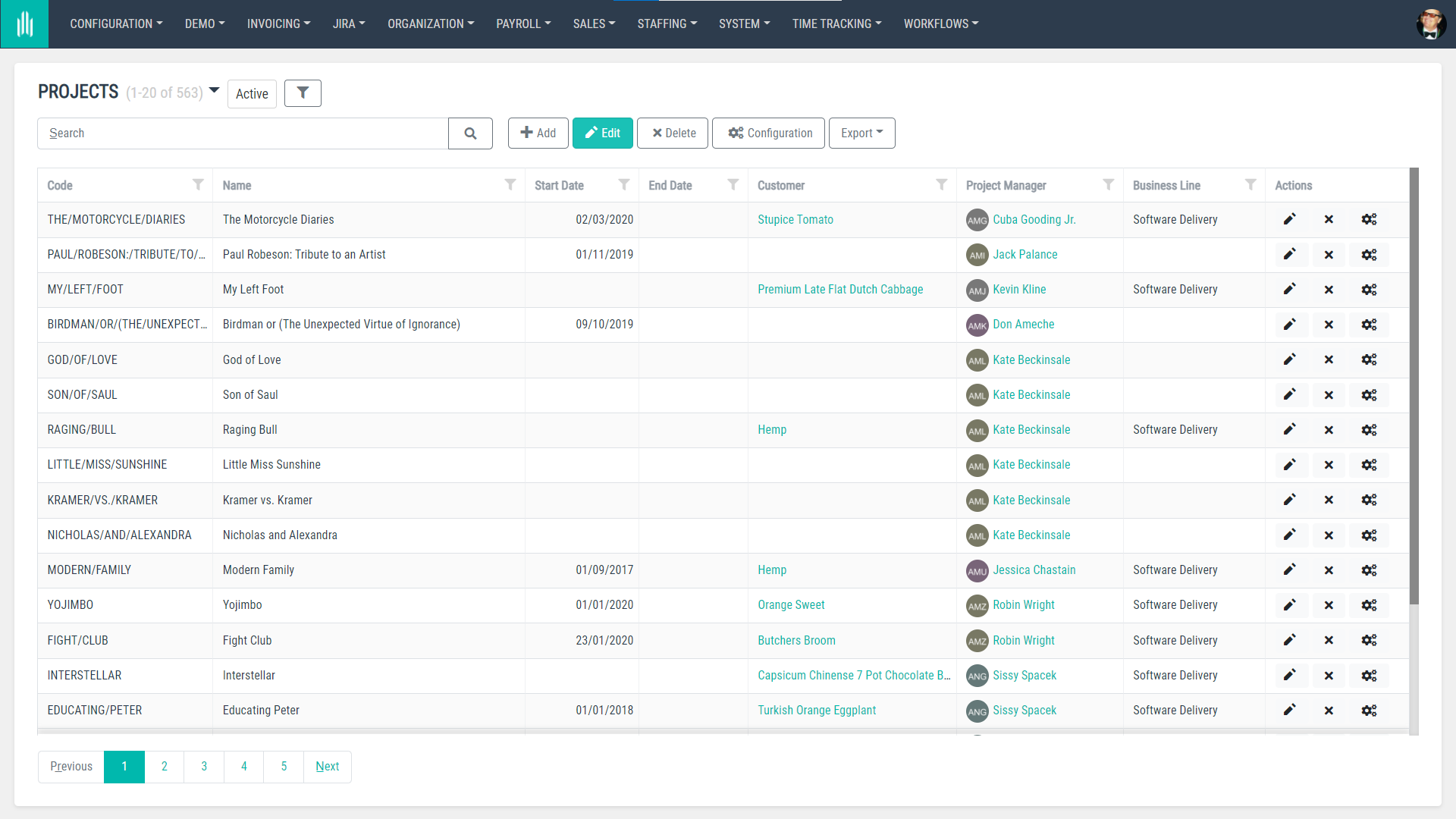
In Competences, Managers can generate CVs for certain employees if and when they need to present them to new or existing customers. These documents will not only include a professional experience of an employee but also list their skills, tools they use, trainings they completed and languages they speak.
Dashboard gives Managers an opportunity to quickly check the most important data they may need – employee growth by location or business line and an overall headcount. Here’s where they can also get an idea about the common reasons for leaving the company.
In Projects, Managers can see all projects, including their costs, and in Team Calendar they can quickly see who’s on holiday, on a business trip, a bank holiday or working from home.
Payroll
Payroll is a module ideal for your HR/Payroll Specialists who are responsible for organisational HR tasks. This is where they are able to see all employee contracts, track any changes that have been applied to these contracts, calculate remunerations KPIs and check stats.
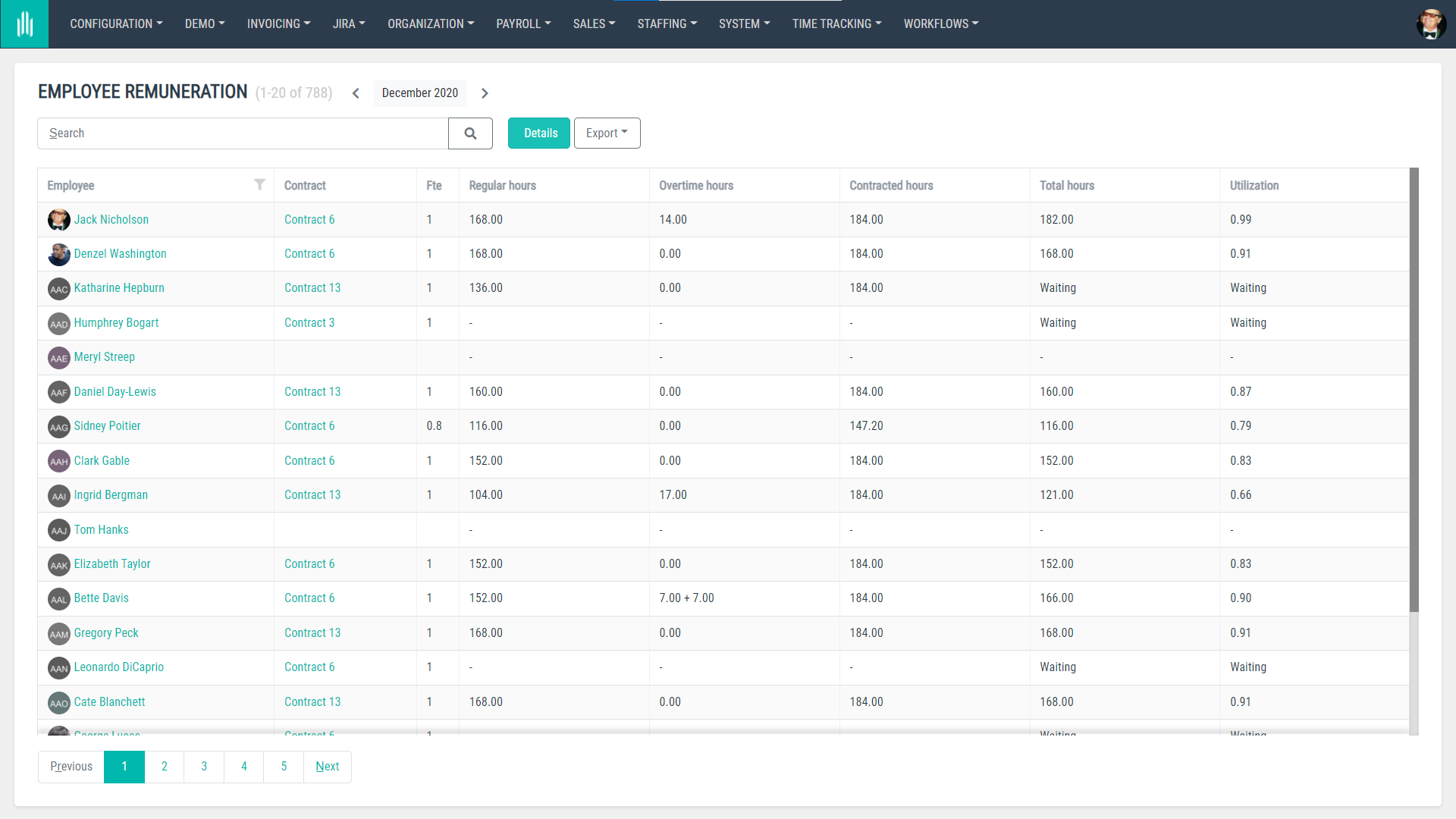
There’s also a segment called Salary Comparison where users can compare between remunerations for different team members and a Vacation Balance section with a list of holidays for all users for a quick overview on whether they use them and who to remind about their remaining days off.
Sales
The Sales module is where users can find basic information about the customers that their company collaborate with, including their company names, contact names, tax numbers, project codes and countries they operate in.
Staffing
The Staffing module is perfect for assigning team members to projects and making sure that they are not overloaded with tasks. In this module, Managers can assign people to certain project temporarily or permanently, check the availability of their team and what roles these people fill in the projects they work on.
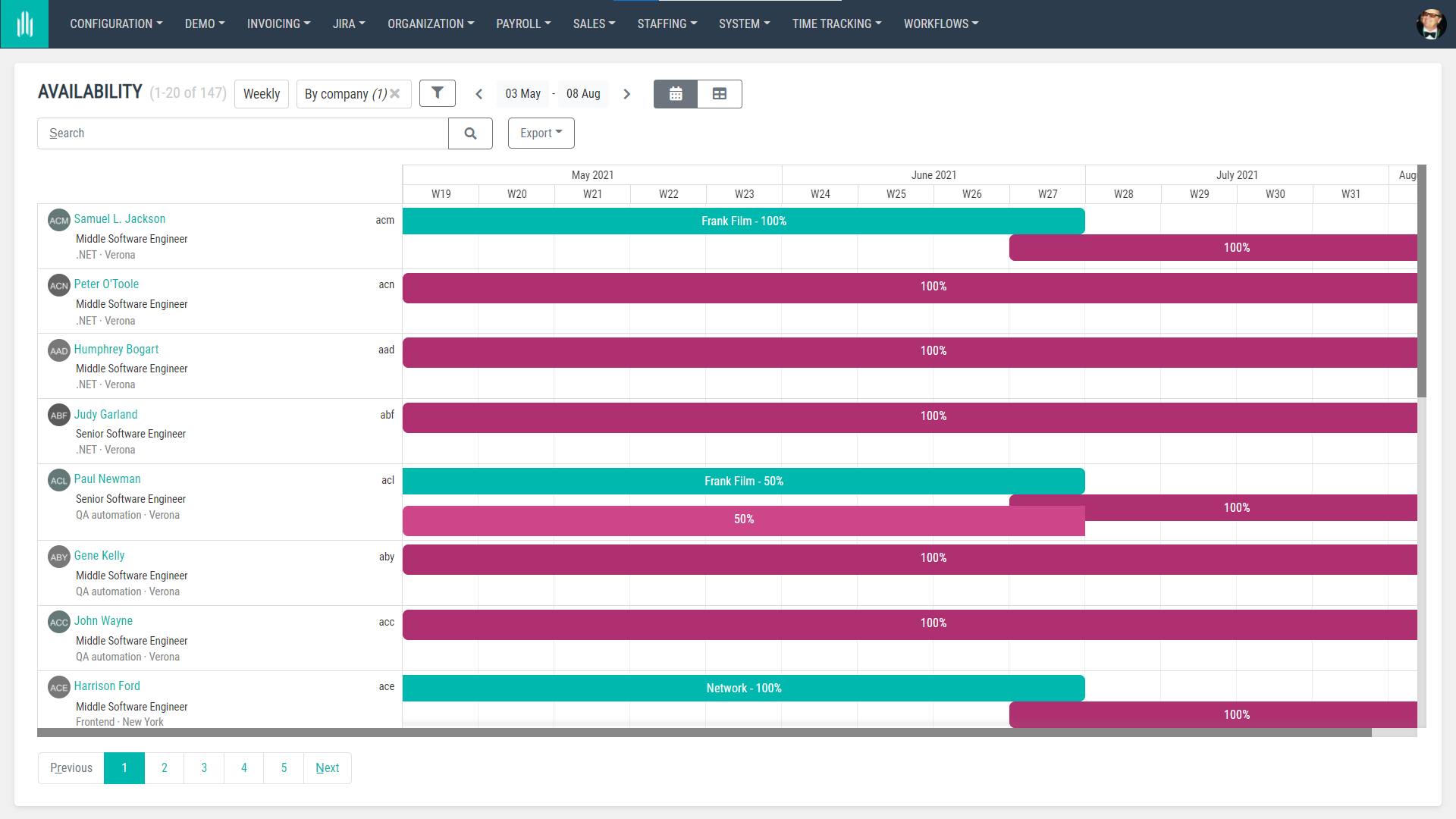
Systems
Systems is a module that’s dedicated to admin users. Here’s where they can manage users’ details, give them access to certain modules, organise users into groups with different access levels and check notifications systems that have been sent from AllPro in their organisation.
The Systems module also works for any configuration setups where notification emails or other actions could be taken automatically after being scheduled in this module. Here’s where administrative users can also define tasks/jobs to be completed systematically, without them having to set up these.
Time Tracking
This section is all about your work time report and the report of your team members being listed and submitted correctly. This is where regular users can prepare, hand in and see their reports. Similarly to other time tracking tools, every report can be divided into certain projects and tasks that users work on an hourly/daily/weekly basis.
Anyone who’s defined as a Manager in AllPro can also view reports for people who are hired onto their teams and see the status of the time reports that need to be submitted, including their hourly progress. All time reports can be also downloaded as .xls or exported to a different tool.
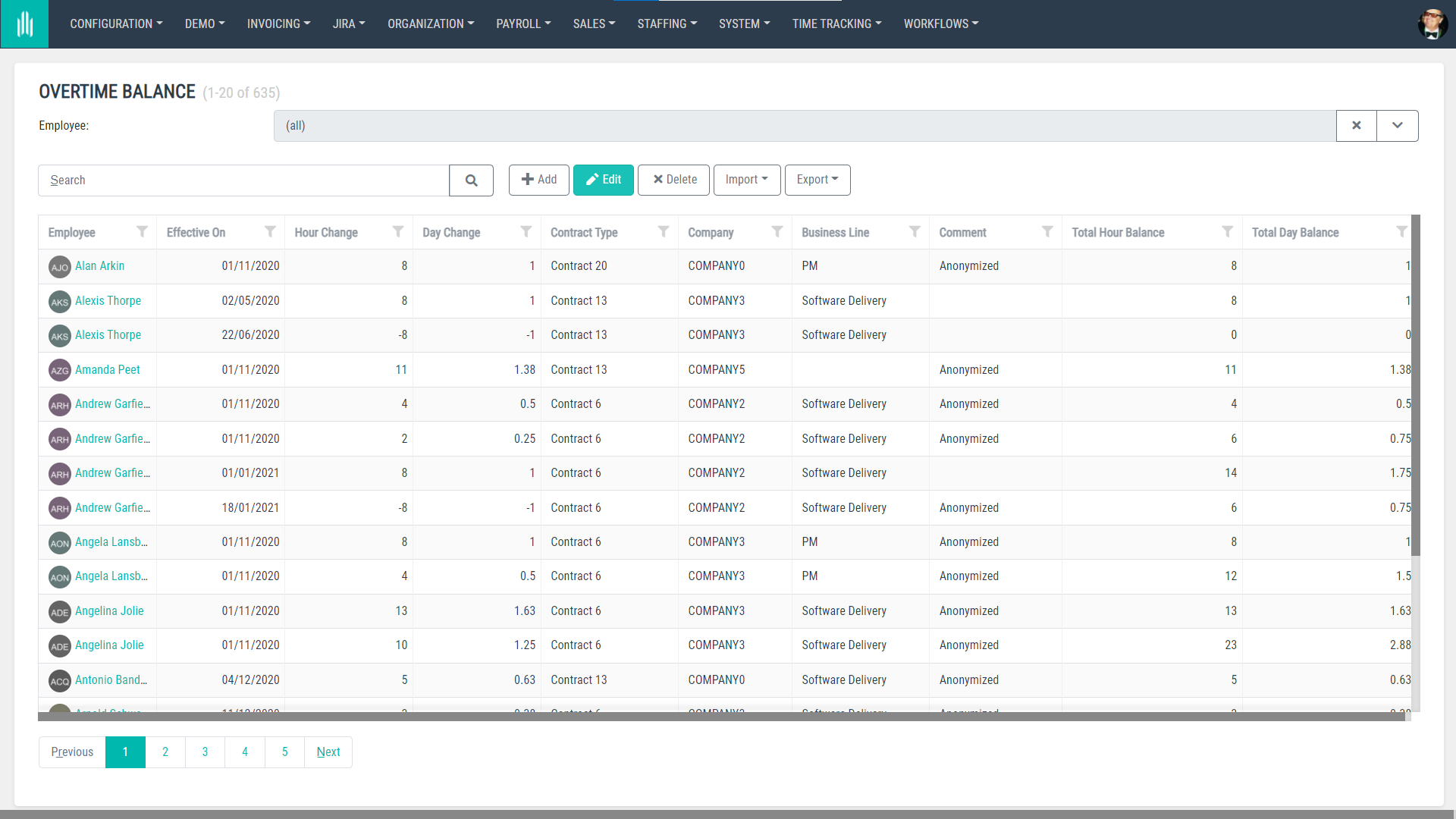
What’s important – in AllPro – we’ve decided to track work time by minutes to make sure that any clients you collaborate with have a clear overview of minutes spent working on their projects and tasks, and can have full control over the costs.
In addition to work time reports, in Time Tracking users can also check their vacation balance and overtime balance, and if they’re Managers – holidays for their team members in the Staff on Holiday section.
Workflows
The main module of Workflows is Request where users can submit absence, overtime, business trip, expense, home office requests, see their status and take additional actions if necessary. They can also request onboarding for new members joining their teams and if they have any problems with their time report they can also request for them to be reopened.
In Workflows, there’s also a module called Substitutions where users can define who will cover for them or their team members when they’re absent.
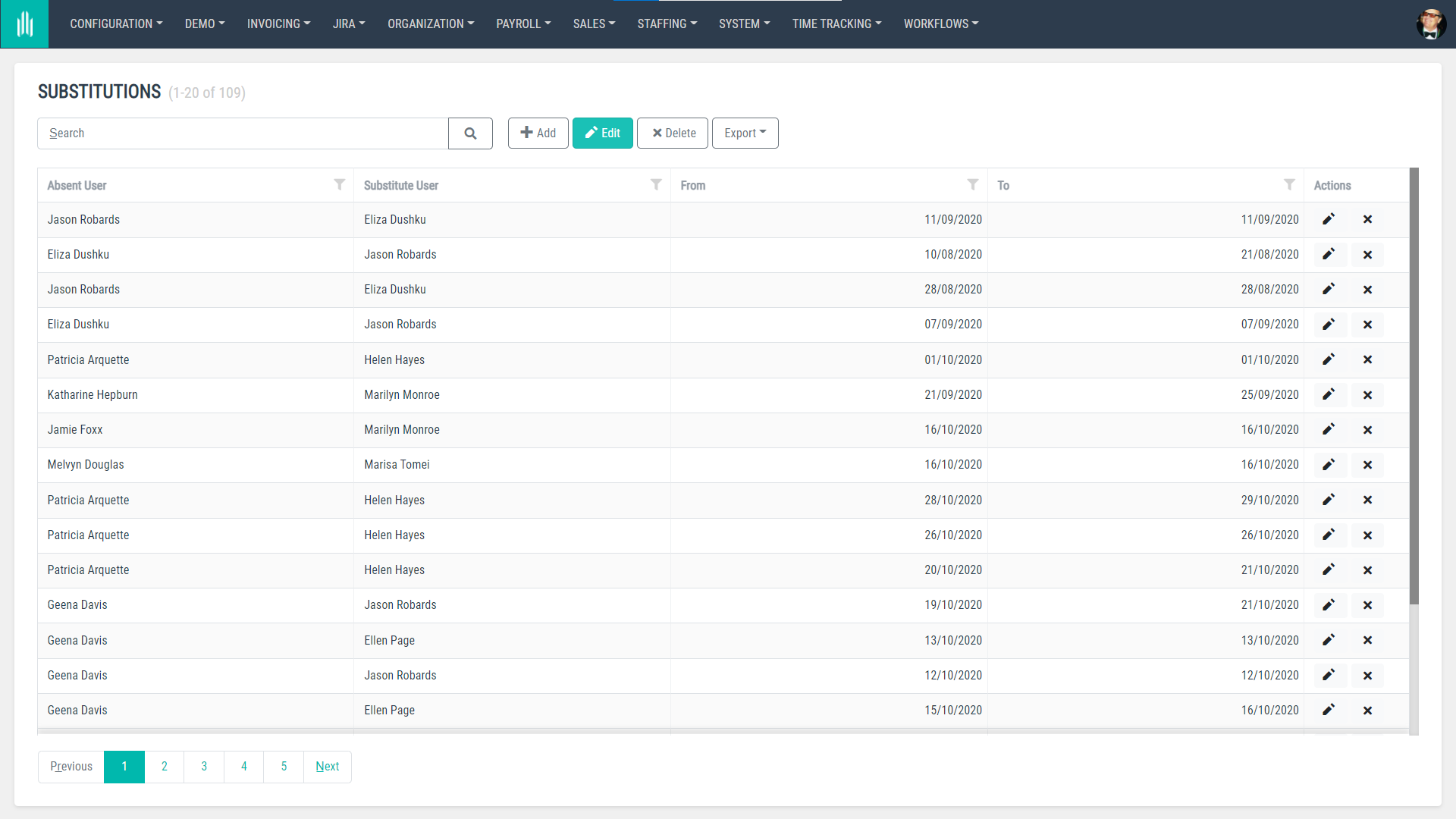
Once a business trip is requested and scheduled, it lands in a module called ‘My Trips’ where users can see their upcoming trips, including all the details – hotel bookings, tickets, insurance, etc. This module can be also made accessible for an Office Manager or anyone who will be involved in organising business trips for team members.
Ready to give AllPro a try in your organisation? Request a demo >
How is AllPro built?
From the technical perspective, AllPro is divided into modules with each module being a separate project. This means that it’s easy to scale and adjust to individual customer’s business needs.
Each module has an internal and external side to it, with the external one represented on three different levels: data, application logic and User Interface. There’s also a representation of these modules on the data base level, and they can be also easily divided into multiple machines.
This modularisation also means that code and responsibilities are distributed among different projects. With AllPro, our goal has been to keep these interdependencies clear and intuitive.
These are how the system is organised:
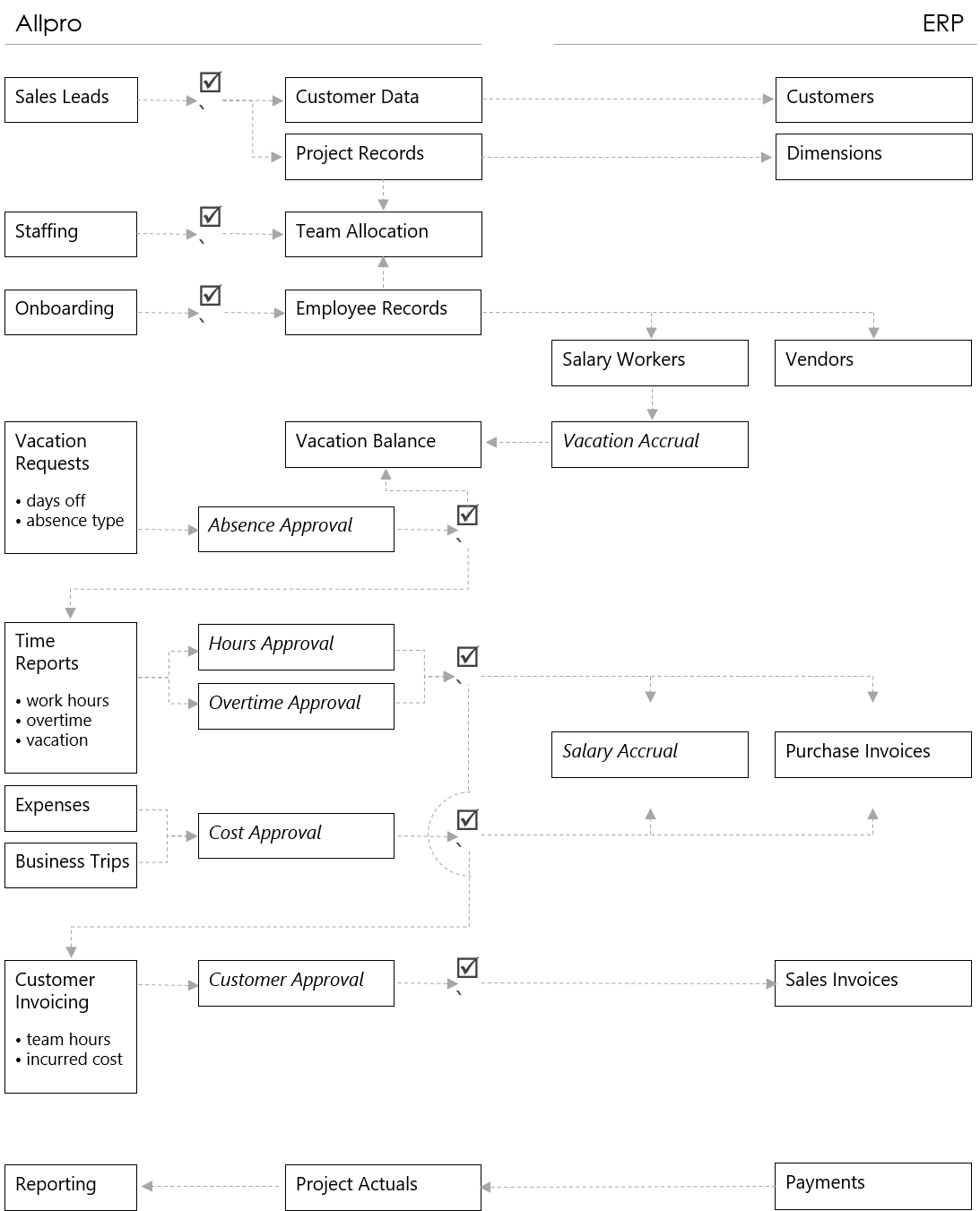
As mentioned above, all of these modules can be switched off and on as your business needs change and your company grows.
Over to you
AllPro was originally created for our organisation (check what we do on our website), but now, we’re ready to share it with the world. We strive to keep this product as a work-in-progress for as long as possible and we’re always open to feedback and ideas.
Do you want to take a look inside AllPro and try it with your team? Contact us for more information.
About the author
RECOMMENDED ARTICLES

